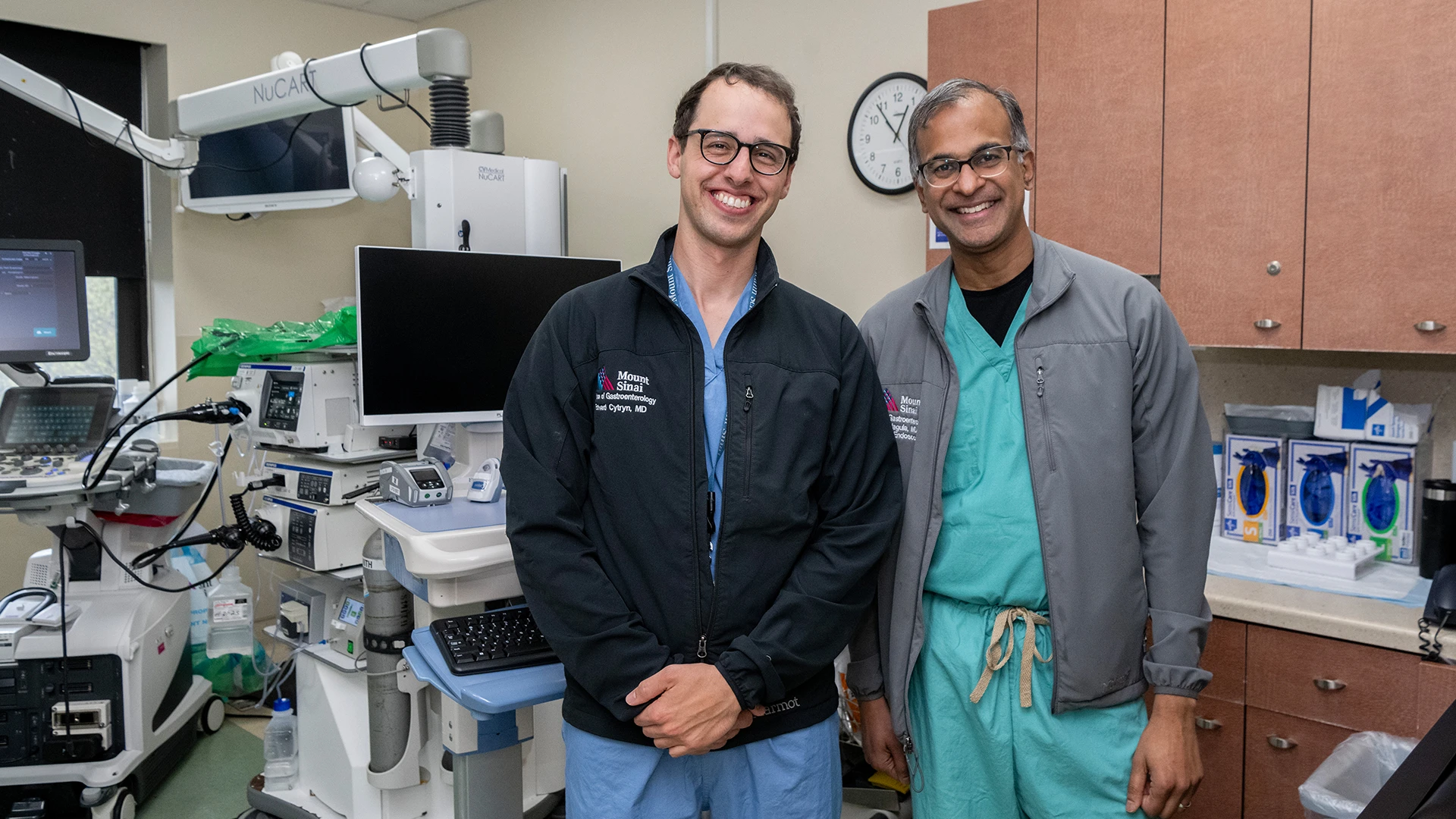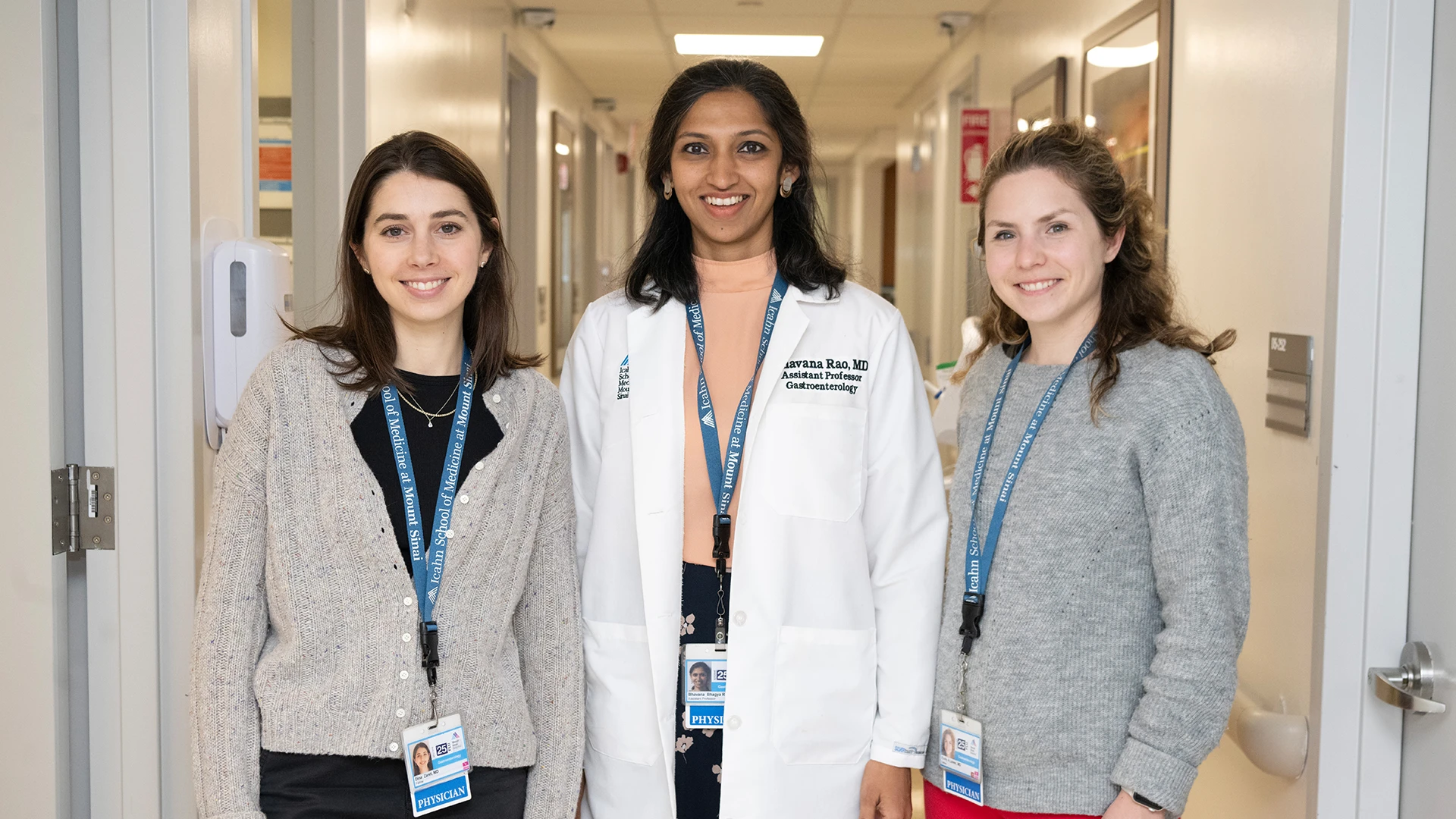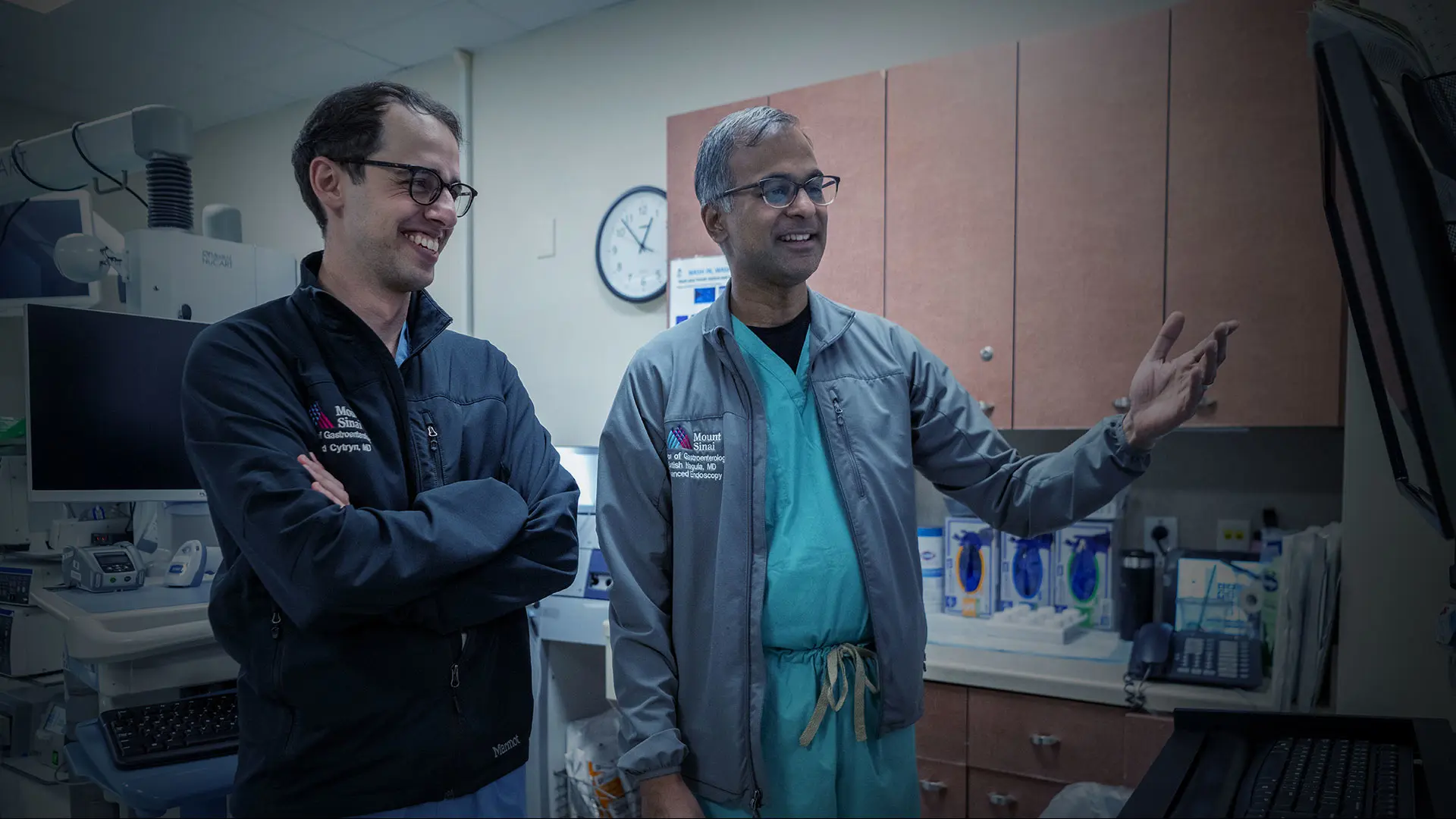The Mount Sinai Hospital’s reputation as a premier inflammatory bowel disease (IBD) center is only part of the educational and professional allure for new recruits to the Gastroenterology Fellowship program.
The second half of their three-year training is uniquely dedicated to scholarship, giving students the flexibility to pursue original research or to develop their interest, skills, and knowledge in other nonclinical areas such as medical education, quality improvement, advocacy, or public policy work.
“Our GI Fellowship is really built to support academic and scholarship interests, and by giving our trainees 18 months of protected time, we give them the freedom to discover and choose a variety of pathways in gastroenterology,” says Satish Nagula, MD, Program Director of the Gastroenterology Fellowship at The Mount Sinai Hospital, and Associate Professor of Medicine (Gastroenterology) at the Icahn School of Medicine at Mount Sinai. “Some fellows are primarily interested in basic science or translational research, while others have a desire to explore scholarly work around medical education, for example. There are many academic domains within gastroenterology today, and Mount Sinai has leaders in all the major ones to personally guide each trainee.”
To be sure, mentoring is baked into the three-year core program. Regular meetings with trainees during the first year are designed to acquaint program leaders with their areas of interest, then match them with prospective mentors in the department who have coinciding skills and expertise.
“We build a mentorship team around the trainees, which means connecting them with national and international experts in their fields of interest,” advises Bhavana Bhagya Rao, MD, Associate Fellowship Program Director and Assistant Professor of Medicine (Gastroenterology, and Medical Education). “This gives fellows the chance to train not just as clinically robust gastroenterologists, but to get a behind-the-scenes peek at the cutting-edge research and clinical trials that routinely take place at Mount Sinai.”

Gastroenterology fellow Edward Cytryn, MD, with Dr. Nagula

Dr. Rao, center, with fellows Dina Zaret, MD, and Emily Leven, MD
Serving as a road map for each student’s journey through the program is the Individualized Development Plan, which they craft with the guidance of fellowship leaders and mentors. These templates are particularly useful in the second and third years of fellowship to identify clinical interests and research/scholarly pursuits, then customize students’ schedules around those areas of interest.
One recent fellow, for example, had an affinity for curriculum development within the broader sphere of medical education, along with a passion for exploring advanced hepatology. Thanks to the generous block of time allotted for scholarship, he was able to engage in both, and further hone his knowledge of transplant hepatology by tacking on a fourth year of fellowship training in that subspecialty field.
“We encourage fellows to pick a dominant field, such as IBD or advanced hepatology, so they can refine their skill sets and develop in-depth projects rather than dabble in multiple fields without ever becoming an expert in one,” explains Dr. Nagula, whose own clinical practice covers pancreatic and biliary diseases. “The idea is for them to engage in a project that could serve as a foundation for the remainder of their careers.”
That flexibility is also manifested in the initial clinical stage of the fellowship program. Fellows are trained in the core curriculum of clinical gastroenterology, hepatology, and endoscopy at The Mount Sinai Hospital, as well as at the James J. Peters Department of Veterans Affairs Medical Center in the Bronx, giving them exposure to an extraordinary range of patient types and disease pathologies. In the subspecialty area of IBD, for example, they see in-hospital patients as well as ambulatory cases weekly at the state-of-the-art Susan and Leonard Feinstein Inflammatory Bowel Disease Clinical Center, developing their own stable of patients under the supervision of an attending.
“Through this regimen, they get a real sense of being independent practitioners, and are better able to transition to becoming junior faculty,” notes Dr. Rao, who is Director of the Fellows’ IBD Clinic. “In fact, the number of graduates who have stayed on and contributed to the work of our division is exemplary and speaks to the tremendous pride we take in each graduate student we train, as well as the joy they experience in being part of this outstanding team.”
